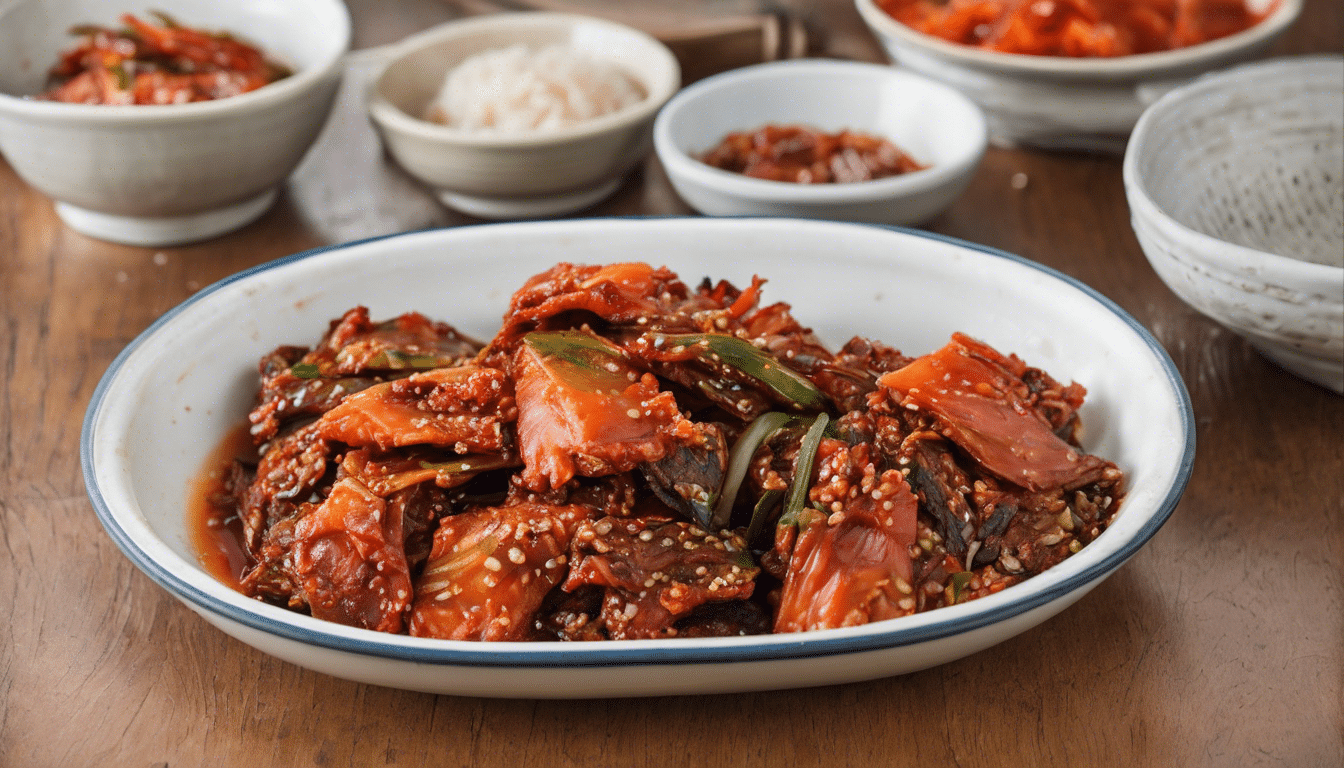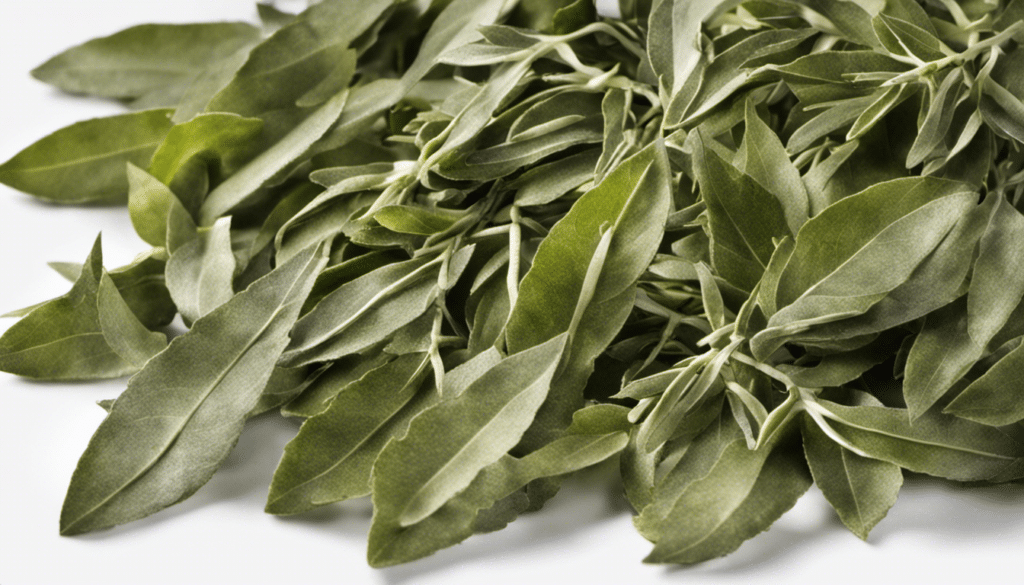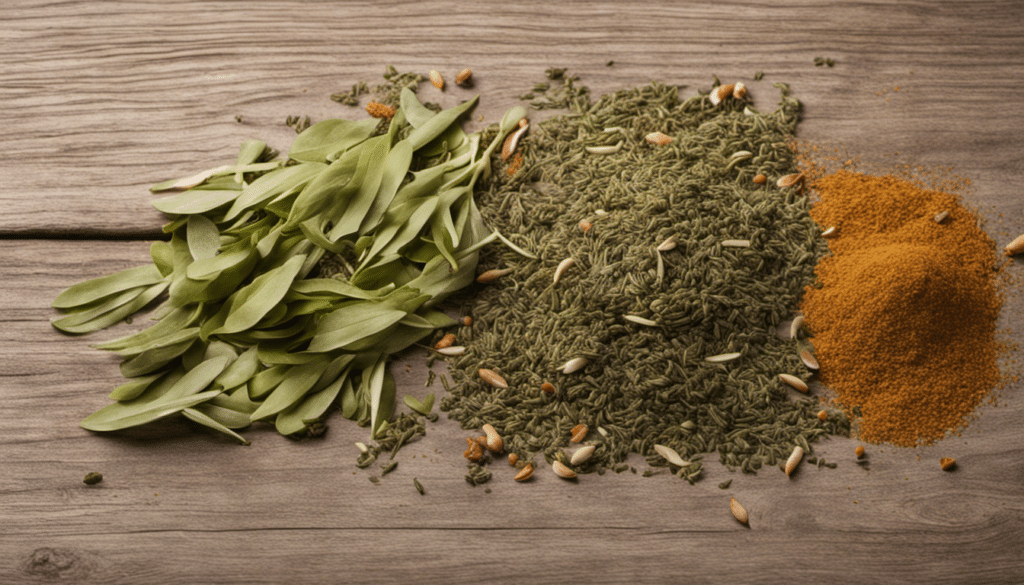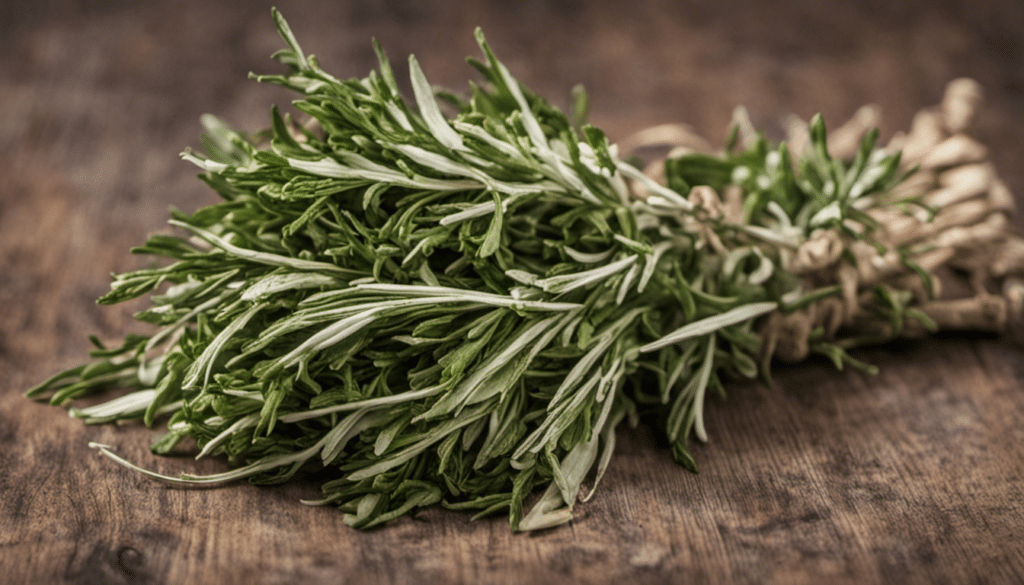| Prep: 20 mins | Cook: 0 mins | Difficulty: Easy | Serves: 6 |
| kcal | fat | saturates | carbs |
| 120 | 1g | 0.2g | 25g |
| sugars | fibre | protein | salt |
| 7g | 3g | 4g | 1.2g |
Few recipes hold a dear place in my heart as does Korean Perilla Leaf Kimchi (Kkaennip-kimchi). The unique fusion of my Boston upbringing with my Irish ancestry may not naturally lend itself to the creation of traditional Asian dishes. Still, that’s what cooking is all about, isn’t it? Branching out, tasting different flavors, and bringing those tastes back to those we love. These are ceremonies we partake in as cooks and as lovers of good, wholesome food.
Health Benefits and Uniqueness
What attracts me to this recipe isn’t just its vibrant colors and the burst of flavor that arises from each bite. It’s also the incredible array of health benefits that come along with each of the ingredients used in this dish. Notably, the perilla leaves which are full of vitamins A and C, and also rich in calcium and iron. With the addition of Korean pear and carrots, you’re getting a significant boost of fiber, vitamin C, and vitamin K, respectively. Each element contributing not just to the taste but also to your health.
A Taste of Fusion and Complementing Dishes
There is also something wonderfully exhilarating about diving into the food culture of a new country. This version of kimchi, known as Kkaennip-kimchi, reminds me of a kind of slaw. It’s similar in texture and the mix of sweet and spicy flavors. It creates a perfect blend that stays with you after you’ve eaten, making you crave more, even days later.
An excellent accompanying dish would be traditional Korean barbecue for a true Korean experience. Alternatively, if you’re in the mood to mix cuisines – much like my fiancé Laura and I often do on our cooking adventures – it pairs exceptionally well with a classic grilled salmon. Here are a few grilled salmon recipes for you to try out with this delightful kimchi!
As a cook, nothing brings me more joy than sharing my favorite recipes. And in many ways, it’s a tradition handed down from my Irish grandparents to my own little boy. The magic of the family dinner table encompasses not just our heritage but the cultures of the world – creating an amalgamation that’s deliciously unique. Just like this Korean Perilla Leaf Kimchi recipe, here’s hoping it becomes a favorite in your household too.
What You’ll Need
- 3 cups of perilla leaves
- 1/2 cup of finely chopped scallions
- 2 tablespoons of minced garlic
- 4 tablespoons of fish sauce
- 4 tablespoons of red pepper flakes (Gochugaru)
- 2 tablespoons of sesame seeds
- 2 tablespoons of sugar
- 1 cup of julienned Korean pear
- 1 cup of julienned carrots
Method
Step One
Take 3 cups of perilla leaves and wash them thoroughly under running water. Ensure that each leaf is clean and free of dirt or debris then let them air dry.
Step Two
While your perilla leaves are drying, prep your other ingredients. Finely chop 1/2 a cup of scallions, mince 2 tablespoons of garlic, julienne 1 cup of Korean pear and 1 cup of carrots.
Step Three
In a large mixing bowl, combine the chopped scallions, minced garlic, julienned carrots and Korean pear. To this add 4 tablespoons of fish sauce, 4 tablespoons of red pepper flakes (Gochugaru), 2 tablespoons of sugar, and 2 tablespoons of sesame seeds.
Step Four
Mix all these ingredients well to create a paste. Make sure the sugar is well-dissolved and the paste is well-combined.
Step Five
Take each perilla leaf and spread a generous amount of the paste on each surface. Stack the perilla leaves, ensuring each leaf is covered in paste.
Step Six
Place the stacked and seasoned leaves in a container with good airtight seal. Repeat the process until all leaves are used.
Step Seven
Once all perilla leaves are in the container, ensure that there is some of the paste left over to cover the top layer. This will prevent any air exposure that might lead to spoilage.
Step Eight
Seal the container and let it stand at room temperature for about 1-2 days for the fermentation process to start. After that, it should be stored in the refrigerator.
Step Nine
Give it a couple more days for the flavors to really meld together, then enjoy your Korean Perilla Leaf Kimchi (Kkaennip-kimchi) in your meals!




